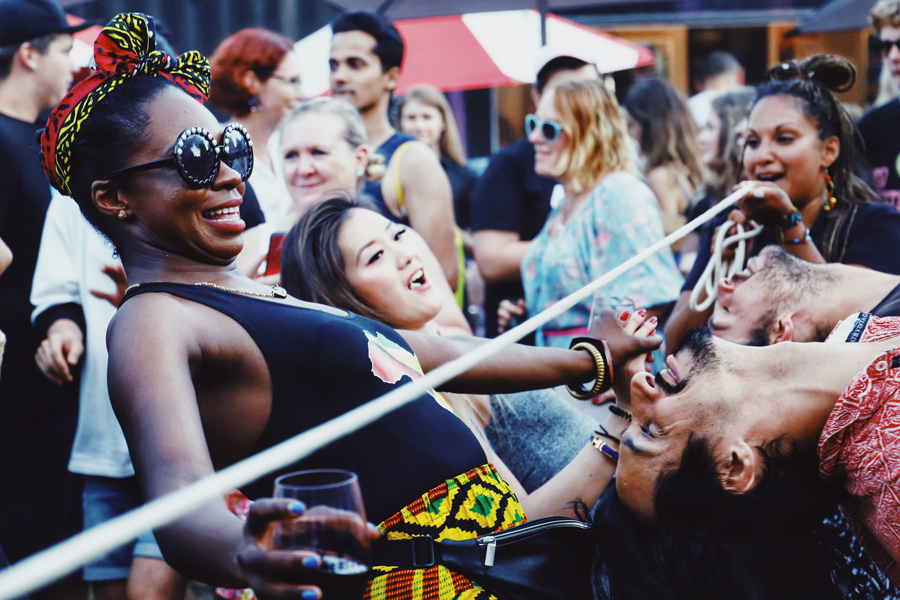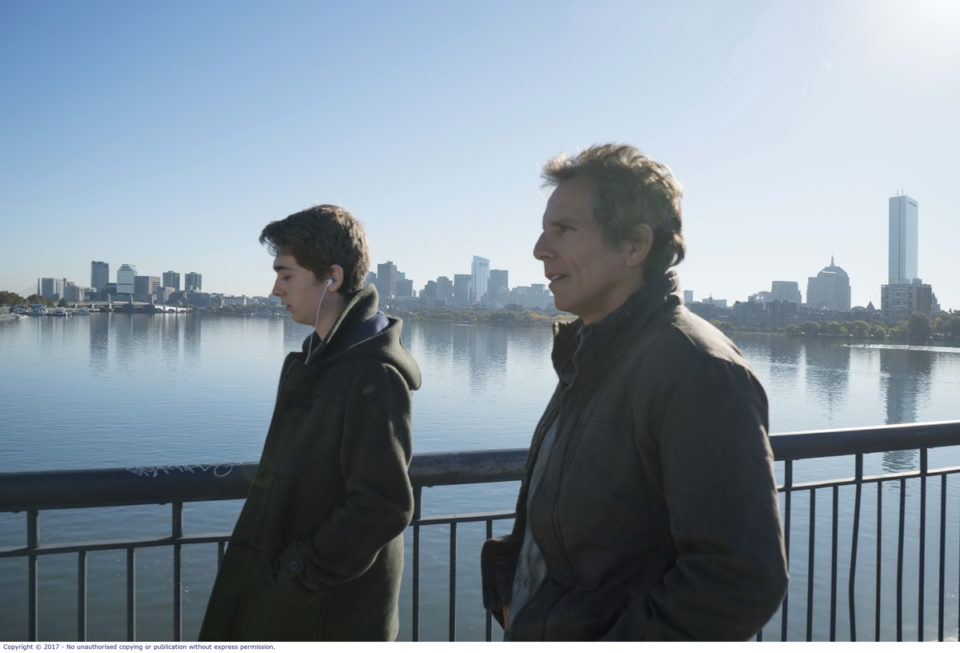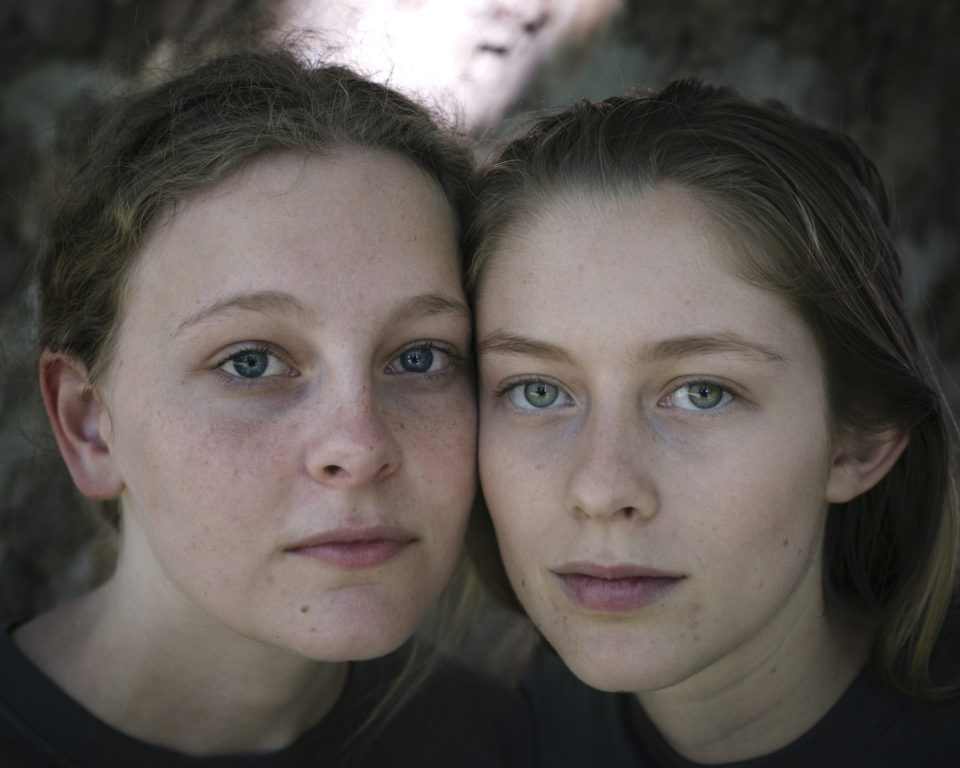If you’re already a vegan – a person who does not eat or use animal products – you’ll know how it feels to be typecast a wowser rather than a person painfully aware of the systemic suffering of sentient beings for human pleasure and profit. You’ll also know the zeitgeist is shifting in our direction.
If you’re not vegan you might have heard a cliché or two about us. We’re food fussy and obsessive. We’re judgy. We preach at you (and it’s true that some of us do). And we are, as my step-son once flippantly put it before he fell in love with a vegan-aspirational vegetarian, “middle-class wankers” – which is to say we’re relatively privileged; veganism tends to be concentrated in the affluent inner city and eastern suburbs of Sydney where education and incomes are highest.
In 2016, the Australian Meat and Livestock Association aired a television ad featuring “lambassador” Lee Lin Chin to promote lamb for Australia Day. It caused quite a stir, managing to offend First Nations peoples by culturally appropriating the word and concept of “Boomerang” as well as depicting a hipster vegan being terrorised by a SWAT team and mocked by a dismissive Chin. As Marc Fennell of The Feed reported, it attracted the most viewer complaints in Australian TV advertising history, but remained on air.
Less publically, but more significantly, the Australian agriculture industrial complex has lobbied parliament to pass an “Ag-Gag” law like the notorious Enterprise Terrorism Act in the US. Ag-Gag refuses to recognise the difference between those who wilfully enact violent extremism (often with civilian targets) and animal rights activists who infiltrate – usually as undercover employees – meat and dairy production facilities to document abuses.
Why has industry lobbied government to keep goings-on behind closed doors hidden from unwitting consumers? Because plant-based eating is booming, partly as a result of activist exposés. According to search engine headlines, veganism is one of the fasting growing lifestyle movements ever. Australians Google “vegan” more than any other nationality, and Australia is the third-fastest growing vegan market in the world.
Though concern for animals is central to veganism, many are going plant-based for health and environmental reasons. Dr Michael Greger, author of How Not to Die, goes so far as to claim it is scientifically proven that a wholefood plant-based diet may help prevent, treat, or reverse every single one of the 15 leading causes of death in the US.
Experts confirm even a modest reduction of meat and dairy consumption can, en masse, make a positive difference to environmental as well as personal well-being. Most people have at minimum some vaguely jokey understanding of the way methane-producing livestock contribute substantially to global warming. But as the Guardian columnist George Monbiot also observed, “Livestock farming is the most potent means by which we amplify our presence on the planet. It is the amount of land an animal-based diet needs that makes it so destructive.”
We might feel morally better for choosing free-range meat and eggs, but as Monbiot details, the core problem of land use remains and even gets worse. It remains nonetheless critical to the planet’s well-being that with rapidly growing middle-classes in economies like China and India, such values and buying habits be promoted and adopted. Those who scoff at First World practices as mere indulgence fail to see this bigger picture.
In Australia, Ray Morgan Research reports a 9.7 per cent rise in people going all or mostly plant-based between 2012 and 2016, stating the majority were swayed by its “low fat” status. Vegetarianism is still the preferred option for many and most people go plant-based in dietary stages, settling somewhere on the continuum between cutting down on meat consumption a la “Meat Free Monday” to “Level 5” veganism, as the writers of The Simpsons famously put it. It’s a start.
But veganism is more than diet. It’s a political, philosophical, and ethical position. One of the most recognised animal rights advocates in Australia is the Nobel Prize Laureate South African-born writer, J.M. Coetzee, who has declared he is not an “animal lover” so much as a seeker of justice:
“Anyone who says that life matters less to an animal than it does to us has not held in his hands an animal fighting for its life. The whole of the being of the animal is thrown into that fight, without reserve. When you say that the fight lacks a dimension of intellectual or imaginative horror, I agree. It is not the mode of being animals to have an intellectual horror: their whole being is in the living flesh… I urge you to walk, flank to flank, beside the beast that is prodded down the chute to his executioner.”
The adoption of a plant-based diet short of this committed understanding is a welcome choice from a vegan point of view, but it’s not necessarily veganism. That said, it’s virtually impossible to avoid animal-derived materials altogether. You can choose not to buy a leather sofa, but it’s hard to guarantee that book you’re reading isn’t bound with “animal glue” or that the production of your TV or computer screen or cell phone didn’t involve the use of animal cholesterol. The point is to do one’s best, given a reasonable choice.
For some, that challenge proves too daunting and it’s not uncommon to hear tales of noble attempts to go vegan thwarted by affordability issues, temptation, health issues (iron and vitamin B12 deficiencies being most commonly associated), or difficulty sourcing vegan food outside urban environments or while travelling. Most find it possible to avoid these pitfalls given sufficient education and strategising, and there’s more support than ever for the vegan curious on sites like Vegan Australia, which offers basic information and lists hundreds of vegan events taking place around Australia.
Jessica Bailey embodies the sharp rise of veganism in Sydney. A vegan entrepreneur, Bailey started the online Cruelty Free Shop as a home-based hobby in 2001, opening the bricks and mortar flagship store on Glebe Point Road in 2012 (the online store now operates out of a warehouse in Petersham). The shop has since seen constant growth, expanding twice in five years to accommodate demand. And the bi-annual Vegan Day Out, hosted by the Sydney Cruelty Free Shop, draws an estimated 2,000 people, with local business participation increasing each time it runs. As a result, new vegan eateries are popping up around Glebe, the Inner West and beyond.
Bailey has also opened Cruelty Free Shops in Melbourne, Brisbane, and Canberra. Next up: a move into bigger Sydney premises followed by a line of vegan products. “Importing is so expensive,” laments Bailey. “When prices start to reduce veganism will be more accessible to everybody.” The matter of equity is, of course, no small point, but it comes down to economies of scale. The bigger the market for vegan products the cheaper they’ll become.
According to Bailey, it’s just a matter of time till the ranks swell enough to tip that scale. I ask if she worries it might be a fad or trend doomed to reverse. “This is the way of the future,” she says adamantly. Bailey points to the news that Tyson Foods, the largest multinational meat producer in the US, recently bought a five per cent share of Beyond Meat. Beyond Meat, a company championed by Bill Gates, has been busy developing the world’s first plant-based meatless burger. It looks and tastes just like meat, with a protein profile to match, and was publically sampled and endorsed by Joanna Lumley (aka Patsy from Absolutely Fabulous), a committed vegetarian of 45 years, at the world’s first conference dedicated to exploring the impact of livestock production on the planet in London on October 7, 2017.
This is the kind of prospect that worries meat and dairy corporations and producers, and associated industries such as “live export”. They will no doubt continue to put up fierce resistance, but if Bailey and the likes of Gates are right we’re headed toward that vegan future one step, one meal, one person at a time.
Recommended:
Green Mushroom, 163 Glebe Point Road, Glebe
Phone: 9566 4999
Opened as a vegetarian Indian restaurant with vegan options in 2015 by Gagandeepsingh Nijjar, known locally as “Gary”. The Glebe restaurant did well, emboldening Gary to convert completely to veganism in February 2017 with a mission to “help people become vegan”. Now one of the most loved vegan establishments in Sydney.
Gathered Kitchen, 99 Glebe Point Road, Glebe
Email: info@gatheredkitchen.com.au
This cafe exploded onto the scene in 2017. Its point of difference is a home-made plant-based range of pastries that look and taste every bit as good as traditional fare.
Coming soon:
Alibi Bar, Ovolo Woolloomooloo, 6 Cowper Wharf Roadway
Due to open later in March, Alibi will take over almost the entire ground floor of the Ovolo Woolloomooloo at the Wharf. A cocktail lounge, its plant-based menu will be defined by the American chef Matthew Kenney, widely regarded as the trend setter behind similar establishments in New York and L.A. “We are finally at the tipping point where chefs and consumers agree that the future of food is plant-based,” Kenney told Neighbourhood. “I’m thrilled to have the opportunity to be part of changing the global food paradigm and to bring together culinary art and overall wellness.”





